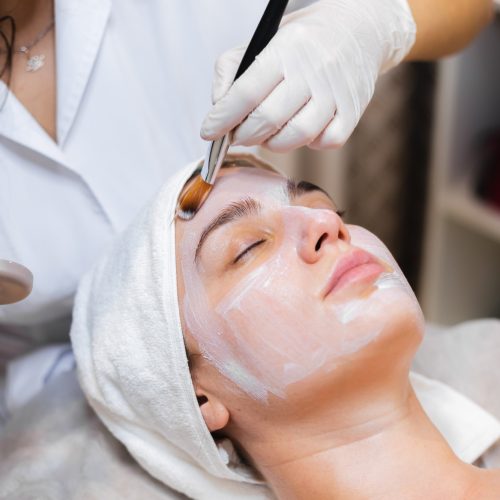Awarded “Most Inspiring Dermatologists” by Economic Times and Times Of India group (TOI)





Photofacial 4D is an advanced non-invasive laser treatment designed to rejuvenate the skin and improve overall complexion. It combines four cutting-edge technologies to target multiple skin concerns, such as pigmentation, fine lines, wrinkles, and uneven skin tone. The procedure stimulates collagen production, tightens skin, and enhances radiance, resulting in a youthful glow. Photofacial 4D is ideal for individuals seeking a painless, quick, and effective solution to achieve smoother and firmer skin. With minimal downtime, it is a popular choice for those looking to reverse signs of aging and sun damage while maintaining a natural, refreshed appearance.

About Photofacial Treatment
A photofacial is a non-invasive skin treatment that uses Intense Pulsed Light (IPL) to target skin concerns. It helps reduce pigmentation, sunspots, redness, and fine lines, giving your skin a youthful glow. The treatment stimulates collagen production, improving skin texture and elasticity. It is effective for treating acne scars, rosacea, and uneven skin tone. Photofacials are quick, with minimal downtime, making them ideal for busy individuals. Over time, regular sessions enhance skin clarity and radiance. Safe and painless, this treatment suits most skin types and can be customized to address specific concerns.
A photofacial is a non-invasive skin treatment that uses Intense Pulsed Light (IPL) to target pigmentation, sun damage, and redness. Most patients describe the sensation as a mild snapping or tingling, similar to a rubber band lightly flicking the skin. While discomfort levels vary, the procedure is generally well-tolerated. Some clinics offer cooling gels or numbing creams to enhance comfort. After treatment, you may experience slight redness or warmth, but these effects subside quickly. Compared to other skin procedures, photofacials cause minimal discomfort with no downtime, making them a popular choice for skin rejuvenation.
Photofacial, or Intense Pulsed Light (IPL) therapy, is a non-invasive skin treatment, but it may cause some mild side effects. Common effects include redness, slight swelling, and sensitivity, which usually subside within a few hours to a day. Some people may experience temporary darkening of treated spots before they flake off. Consulting a qualified dermatologist ensures safe treatment and optimal results. Always follow post-treatment instructions for the best outcome.
The effects of a photofacial typically last between six months to a year, depending on skin type, lifestyle, and aftercare. Most people see visible improvements after one session, but a series of 3–5 treatments spaced a few weeks apart ensures optimal results. Proper skincare, sun protection, and a healthy lifestyle can help prolong the benefits. Regular maintenance sessions every 6–12 months can sustain youthful, even-toned skin. Factors like sun exposure, aging, and skincare habits influence longevity. Consult a dermatologist for a personalized treatment plan to maintain radiant, blemish-free skin.
A photofacial, or IPL (Intense Pulsed Light) therapy, is an effective treatment for improving skin tone, reducing sun damage, and minimizing redness. The frequency of photofacial treatments depends on your skin type and concerns. Typically, dermatologists recommend a series of 3 to 5 sessions spaced 3 to 4 weeks apart for optimal results. After completing the initial series, maintenance treatments every 6 to 12 months help sustain the benefits. Always consult a skincare professional to determine the best treatment plan for your needs. Regular use of sunscreen enhances and prolongs the effects of your photofacial.
Photofacial, also known as IPL (Intense Pulsed Light) therapy, is a non-invasive skin treatment designed to improve skin tone, reduce pigmentation, and combat signs of aging. It is generally considered safe when performed by a trained professional. The procedure uses light energy to target skin concerns like sun damage, redness, and fine lines with minimal discomfort and downtime. However, individuals with sensitive skin or certain medical conditions should consult a dermatologist before undergoing treatment. Following proper aftercare, including sun protection, enhances safety and results. When done correctly, photofacial treatments can provide noticeable skin rejuvenation with low risks.